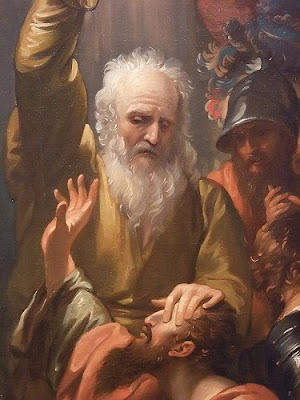 A reflection by the fire on a cold, col morning!
A reflection by the fire on a cold, col morning!It is important to walk through the gospel reading for this Fourth Sunday of Ordinary Time. Listen to what is happening in the temple as described by Saint Luke. Jesus is actually challenged: This is a carpenter's son, this is a young man who speaks out without any "seminary training," who is to "preach" to us? And there were most likely a number of other thoughts within the minds of the "faithful" in the house of prayer. So what does this event and Jesus' words hold for you and me?
Do you fall back from speaking out about our faith because you know you will be ridiculed or criticized because you may have closeted skeletons that others know?
Do you feel afraid to examine personal beliefs about who Jesus is and the mission that he was preaching while on this earth? Why? Perhaps if such an examination happened, the "cost" of following him might be too expensive as regards how one lives life.
So, what does this gospel story stir up in your heart and mind, in your soul? It is an event that you might consider during these weeks before we embark upon another season of Lent.
Don't forget this: as a follower of Jesus Christ, and, if you are a Roman Catholic, do you speak for you faith by the way you live, by your defending your Church when there is a need to do so, and do you take the time to examine who Jesus is for you? Again, you see, it is not easy to be a disciple of Jesus Christ if you do not have a close relationship with him! How much did Jesus fit into your life during this month of January that ends today?
Do you fall back from speaking out about our faith because you know you will be ridiculed or criticized because you may have closeted skeletons that others know?
Do you feel afraid to examine personal beliefs about who Jesus is and the mission that he was preaching while on this earth? Why? Perhaps if such an examination happened, the "cost" of following him might be too expensive as regards how one lives life.
So, what does this gospel story stir up in your heart and mind, in your soul? It is an event that you might consider during these weeks before we embark upon another season of Lent.
Don't forget this: as a follower of Jesus Christ, and, if you are a Roman Catholic, do you speak for you faith by the way you live, by your defending your Church when there is a need to do so, and do you take the time to examine who Jesus is for you? Again, you see, it is not easy to be a disciple of Jesus Christ if you do not have a close relationship with him! How much did Jesus fit into your life during this month of January that ends today?
























